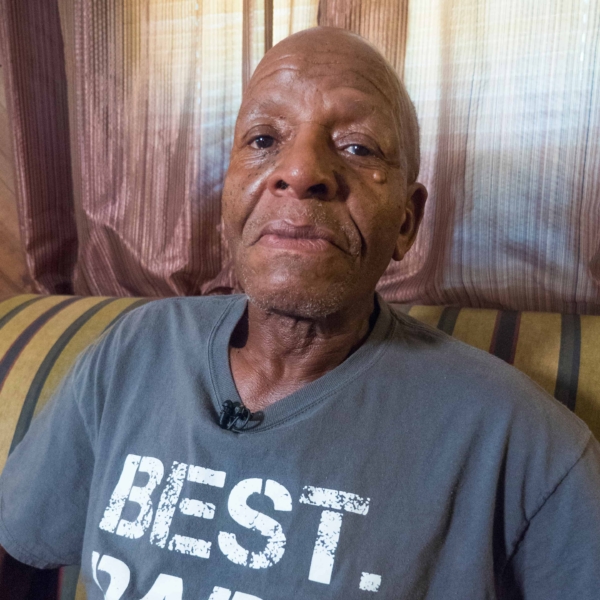Fred Culp is a 78 year-old resident of Waxhaw, North Carolina. He is originally from South Carolina but has lived in North Carolina for the last 45 years. He prides himself on being the best grandpa in the world. He vividly remembers growing up in the segregated South, having to enter the side doors of restaurants to be served. Fred explained that sometimes circumstances in the south caused you “to reach a boiling point.” He knew “what was right and wrong before things started changing in the south.” Fred demonstrated this by following Dr. Martin Luther King and Reverend Abernathy. Fred participated in a sit-in at one of the restaurants that forced him to enter through the side door.
When Fred lived in South Carolina, he had a niece working at the Highway Department help him get a South Carolina government ID. That South Carolina ID expired over ten years ago. Fred attempted to get a North Carolina ID when he moved here but was unsuccessful. He was told that his South Carolina ID could not be used to obtain a North Carolina ID. Fred then tried to get copy of his birth certificate so he could get a North Carolina ID. However, Fred has had difficulty obtaining this document as well because of a discrepancy in the spelling of his mother’s name in South Carolina state records. Fred hasn’t driven for some time because of a neck injury—he relies on his wife for transportation.
In 2016, Fred went to vote as he does for other elections—Fred understands the importance of voting. Because Fred did not have a North Carolina driver’s license he was forced to fill out a provisional ballot. Fred still does not have a North Carolina-issued picture ID and is at risk of being disenfranchised in the future if the Voter ID Amendment passes.
Nearly 140,000 African-American registered voters in North Carolina lack a government issued picture ID—indeed, African Americans make up 36.67% of North Carolina registered voters lacking ID despite being only 22.45% of the registered voters in the state. Like Fred, these North Carolinians could be denied their fundamental right to vote if the Voter ID Amendment is approved in November, giving the legislature a blank check to enact a restrictive photo ID requirement for voting.

